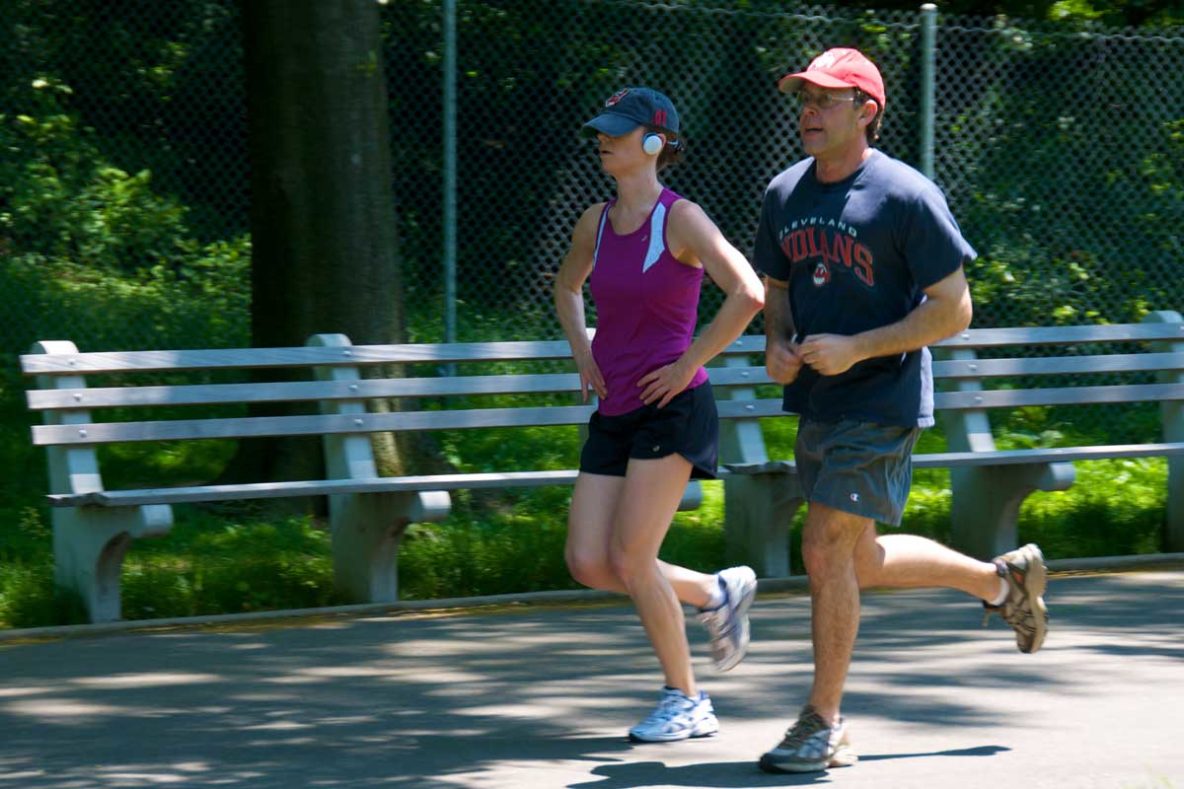As I review the latest research on the benefits of exercise, I am struck by the plethora of consistent evidence pointing to its positive mental and physical health effects. Regular physical activity has been shown to deter the aging process, reverse the progression of medical illnesses, and eliminate stress, anxiety and depression.
It is not clear in response to what lifestyle and dose of exercise the specific health targets are met. However, it has been proven that engaging in a minimum of 3 half hours of exercise a week on a continual basis can serve as a protective measure against adverse health conditions. Research Studies demonstrate that greater benefit is gained from vigorous exercise like dancing, running and skating. But for those who are not able or motivated in that direction, starting with a few minutes of walking, yoga stretches or daily gardening activities can help.
Research Data
On Cognitive Functioning:
Clinical data reveal that “people who exercise several times per week show a reduced rate of cognitive decline with age [compared with] those who have low levels of activity,” according to Carl Cotman, PhD, director of the Institute for Brain Aging at the University of California, Irvine. In a 4-decade review of the epidemiologic literature, Dr. Kramer and colleagues, reported a significant protective effect of physical activity on cognitive function and on decreased incidence of dementia, with the benefits lasting up to several decades. A few studies of human subjects older than 65 years showed that exercise lasting at least 15 to 30 minutes, 3 times weekly, reduced the probability of developing Alzheimer’s disease, even in subjects who were genetically predisposed.” Other compelling evidence, comes from animal studies, where it has been established that “voluntary running increases neuroprotective molecules in the brain, such as brain-derived neurotrophic factor (BDNF), and also reduces the accumulation of molecules associated with Alzheimer’s disease, such as beta-amyloid.” Another study published by researchers from Michigan State University and Grand Valley State University showed that students who engaged in more vigorous physical activity than their more sedentary counterparts tended to perform better in school by 10 percent.
Read Full Articles
On Physical Health:
Exercise does not only delay the onset of dementia and improve cognitive performance, it can also reverse or slow down the progression of diseases. Growing evidence suggests that exercise – whether it’s sweating on a treadmill or on a dance floor – can help Parkinson’s patients move better and may even slow the inevitable march of this degenerative brain disease. Other studies have found regular exercise to show positive health changes with cancer, type2 Diabetes, osteoporosis and cardiovascular diseases.
Read Full Articles
On Mental Health:
Several studies also reveal the enormous mental health benefits gained from physical activity. In one study, investigators found that “adults who participated in a three-month rigorous exercise program experienced a decline in depressive symptoms about as great as they would have experienced had they received standard depression treatment, such as antidepressant medication.”
Yet another research finding concluded that among middle-school children, higher levels of physical activities are associated with fewer depressive symptoms. Similarly, exercise has been associated with improvements in panic disorder, post-traumatic stress and other anxiety disorders. Berlin and her colleagues in the March-April issue of Psychosomatic Medicine cited studies which suggest that symptoms of depression like fatigue, tension and irritability can develop in a fit person who stops exercising. Tension and stress can even shrink the brain, but regular exercise can make a big difference in reversing its adverse effects, according to Bruce McEwen, head of the neuroendocrinology laboratory at Rockefeller University in New York City.
Read Full Articles
Now that you know that exercise is good for your physical and mental health, don’t skip a chance to exercise after you have consulted your physician about what kind and amount of it can be of benefit to you.
Copyright: 2007. All Rights Reserved
